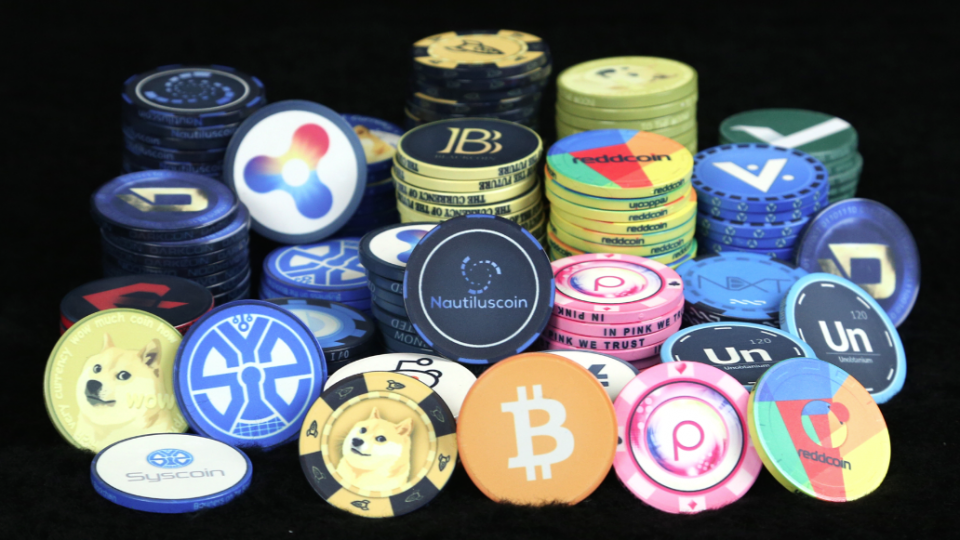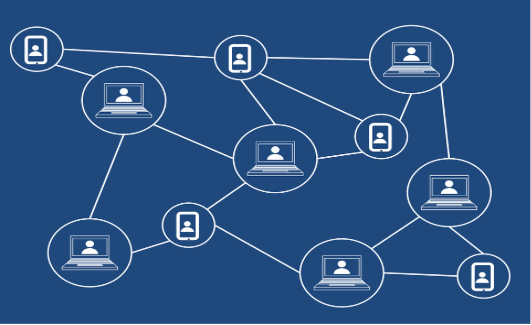Creative token economics will change how we look at jobs

The global economy is going through a rapid and very interesting shift, thanks to new tech advances – such as the emergence of blockchain based cryptocurrencies. Increasing decentralization has opened up markets that were previously difficult to sustain. While it would be difficult to expect every cryptocurrency getting established in its own space due to their sheer number, it certainly would be exciting to see some of them succeed. More importantly – the underlying concept behind cryptocurrencies – decentralization – is set to dominate more industries.
In the not-so-distant future, expect more decentralization in jobs. This will enable people to become their own bosses and promote a loosely structured corporate hierarchy.
With business models such as those Uber, Airbnb, and Upwork, we are coming closer to the concept of shared economies – where each person owns less and shares more. These companies are prime examples of how jobs have evolved with time and technology. bringing in more freedom to work and earn.
Token Economics is what we like to call the underlying factor for the success of such business models. Let’s dive deeper and understand what exactly token economics is, and how can it be used to develop strong and efficient business models.
What is Token Economics?

Blockchain theorist and strategist William Mougayar in his article Tokenomics – A Business Guide to Token Usage, Utility, and Value, defines a token as just another term for privately issued currency. With the help of the blockchain, he says, many new types of organizations are issuing their own currency digitally as cryptocurrency framing their own set of rules and terms of operation. In the business realm, he defines the token as-
“A unit of value that an organization creates to self-govern its business model, and empower its users to interact with its products while facilitating the distribution and sharing of rewards and benefits to all of its stakeholders.”
Every blockchain model has its own token economics model. Every model is based on incentive theory. In token economics, these tokens become incentives and they are used to motivate members to work for the benefit of the entire network. This way, they can keep a track of their own progress, and have a say in major decisions by virtue of the votes they hold with their token balances.
This is unlike traditional business models, where incentives are in the hands of a few selected managers or supervisors. Workers worldwide have adopted the prevalence of making money online which empowers them to monetize income from their preferred sources.
21st-century pioneers of the shared economy

The sharing economy has democratized markets, making them less capitalist – with companies like Airbnb and Uber trying to build friendly networks by providing services at reasonable and sometimes even cheaper rates. They’ve been able to tap into the blue collar jobs marketplace and empowered workers to set their own rules and flexible hours. All of this, while earning comparatively more than in structured environments.
Moreover, Uber drivers and homeowners who rent out their homes on Airbnb are apparently able to lead a better quality of life, compared to their counterparts in other business models doing similar types of jobs. Upwork is a platform that helps freelancers connect with professionals and companies who need such services.
The workspace has grown more simple and welcoming with the emergence of such shared and connected networks. In a Forbes article featuring pioneers of the ‘shared economy’, Turo (formerly known as Relayrides) made it to the list. Turo is a platform for car owners and renters to share vehicles, leading to reduced rental costs (and ownership costs simultaneously). People looking to monetize their cars can put it up for rent while they sit in their homes or offices.
Evolving business models, courtesy token economics
The blockchain has led to an emergence of entirely new marketplaces. It brings more transparency, lowers costs and more profitability by design. Such models can even expand to education, allowing for better learning systems where knowledge itself is shared, with tokens helping run such systems. While some developers and users may not have knowledge or expertise in cryptocurrency or blockchain, they can always access Peerbuds where they can learn these skills from experts.
Bitcoin and Ethereum serve the utility of monetary transfers, smart contracts and appreciation in value, due to which they’ve gained popularity. Different tokens can serve different utilities, some could be used for monetary transactions – like paying off your restaurant bill or your club membership fees, while some tokens could have special purposes for blockchain based services. Take Maidsafe – which distributes Safecoin as its digital token. Safecoins are given as an incentive to users to provide their storage space and bandwidth to the network, enabling other users to store and retrieve their data from these computers anywhere in the world.
Does the concept sound familiar? This is the cloud storage model we all know of. Think of it like Google Drive or Dropbox, except that it is decentralized.
The amount of Safecoin a user can earn depends upon the number of resources they provide to the network and how often their computer is available to the network. Token economics can power several such business ideas today that otherwise couldn’t exist. These ideas should witness more innovation as the chemistry between blockchain and the token economy grows stronger.
If the blockchain marries token economics
Real world assets could be tokenized using blockchain technology as well. People interested in buying fractions of assets can send owners tokens to represent the value of the fraction they are willing to buy. The asset owner can digitize her/his ownership papers and store them via blockchain in order to issue tokens for the ownership of his asset. Imagine part-owning a home with dozens of other people, and collecting and splitting the rent equally. This is easily possible with the blockchain – and parts of it are already happening.
This way, assets can be made liquid on a global scale. Real world assets would then make the economy closely tied together and easily accessible.
Using blockchain tech, startups are choosing to raise capital through ICOs and token sales instead of following traditional methods of borrowing. This will not only become a fundamentally viable source of borrowing but will also fuel the startup industry. Blockchain tech could pave the way for seamless employee assessments and even recruitments.
Creative token economics, coupled with the blockchain, could revolutionize much more than just the cryptocurrency industry!
Congratulations @sahilp! You have completed some achievement on Steemit and have been rewarded with new badge(s) :
Click on any badge to view your own Board of Honor on SteemitBoard.
For more information about SteemitBoard, click here
If you no longer want to receive notifications, reply to this comment with the word
STOPCongratulations @sahilp! You received a personal award!
Click here to view your Board
Congratulations @sahilp! You received a personal award!
You can view your badges on your Steem Board and compare to others on the Steem Ranking
Vote for @Steemitboard as a witness to get one more award and increased upvotes!